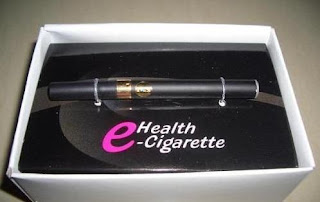
Surgeon General’s Warning: Tobacco use at Dixie State College is detrimental to users’ and non-users’ educational experience.
There is quite a buzz around DSC if the campus should be tobacco-free and rightfully so. Speaking of the word “right,” a major debate topic from tobacco users is that a ban on tobacco is against their individual rights. Good point, but what are your rights, and what laws are currently associated with tobacco?
According to Utah state law, an owner, agent or operator of government or public facilities, buildings, educational institutions and areas has the right to establish policies prohibiting tobacco; even “anywhere outdoors on the premises.”
The main debate shouldn’t be if a tobacco-free policy is constitutional or against personal rights, but if DSC should implement such a policy. If you have currently attempted to get involved on campus instead of just going from class to home, then you would know efforts are currently underway to pass such a policy. But DSC isn’t breaking ground with these efforts. Hundreds of other campuses have already instituted 100 percent tobacco-free policies.
According to a Sept. 1, 2011, CNN report, more than 500 American campuses have tobacco-free policies in action as of July 2011. This shows tobacco is unwanted in an educational setting. It has no place for it. It is distracting, smelly, gross and mentally degrading.
Don’t get me wrong. I am a hate-the-game-not-the-player kind of guy. I denounce tobacco, not the user.
Save using tobacco for when you are at home or away from campus. If you can’t go a couple of hours without tobacco, then get some help because such an overpowering addiction is damaging for your life; any serious addiction is. I would imagine such an addiction would distract a student’s ability to learn and a teacher’s ability to effectively assist in the learning process.
The solution to help DSC student and teacher tobacco users quit: a tobacco-free policy in coordination with cession efforts from health professionals. I recently sat and talked with student Sen. Joe Pate, a senior nursing major from Provo, about the policy and what the college has to offer for tobacco users.
He said people from Southwest Utah Public Health and the Health and Wellness Center are willing to help with the tobacco-free efforts. People who want to quit can call the Utah quit line to get enrolled into a program and receive eight weeks of nicotine supplements. Also, the Health and Wellness Center will provide cessation supplements and courses. The services require a $10 co-pay, which is a small investment for one who seeks help.
“Everything is in place for students to quit,” Pate said. “I hope that in the near future we can help the Health and Wellness Center have more of a presence on campus so that students can have better awareness of what they have to offer; not just cigarettes-cessation.”
DSC should follow the example of many major American educational institutions and adapt the policy, but only if it will help all students and faculty, not just non-users.
Let us all be proud of DSC in every way possible. Image is everything. So why not give DSC a clean, helpful and health conscious vibe we all can brag about? A tobacco-free Dixie is the way to be.





